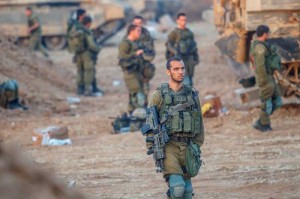By Shafi Rahman
The Government may review the Foreign Enlistment Act 1870 filled with loopholes which prevents effective prosecution of people joining the armed forces of foreign country in the wake of many British citizens joining conflicts abroad. Responding to a question at a press meet about Britons travelling to join the Israeli forces, a chief police officer noted that the police want a review of the law. “Home Office is aware of the situation,” National Policing Lead for Prevent Chief Constable Sir Peter Fahy said.
 The 19th century legislation makes it illegal for British citizens to join the armed forces of a country fighting a state at peace with Britain was never effectively put to use. When prosecutors attempted to stop British volunteers from fighting in the Spanish Civil War in the 1930s, the law was found to be ineffective with embarrassing consequences.
The 19th century legislation makes it illegal for British citizens to join the armed forces of a country fighting a state at peace with Britain was never effectively put to use. When prosecutors attempted to stop British volunteers from fighting in the Spanish Civil War in the 1930s, the law was found to be ineffective with embarrassing consequences.
The Police believe that amendment of law will bring “consistency in the narrative” as questions are being raised about differences in the legal treatment of those travelling to Syria and those serving the Israeli Defence Forces (IDF) without any legal difficulties.
Many activists like Farooq Siddiqui, formerly of the Prevent programme, has been criticising the UK for treating those going to Syria and those who fight for the IDF differently. “If we’re talking about stopping people, Muslims, stopping them from going over to other countries and fighting, why are we not doing that as a blanket for stopping anyone that goes over abroad to fight in other countries?,” he recently told Channel 4. The IDF told Channel 4 News there are “around one hundred Brits currently serving” in its ranks.
Proportionate Response
As conflicts in Syria, Iraq and Gaza and Israel continue, chief constable said that police are working hard to provide a proportionate response to the issues raised by these conflicts in the UK.
“Conflicts in Syria, Iraq and Gaza and Israel are dominating the news. They touch our lives in the UK as we hear horrific stories about the impact of war and terrorism on the ordinary people living in those countries. The war in Syria and the numbers of people travelling there remain a real risk to our national security, as well as being extremely dangerous and life-threatening for those travelling and personal tragedy for the families they leave behind,” Sir Peter said.
The latest Syria-related arrest figures show that between April and June 2014 a total of 29 arrests were made across the UK for alleged offences such as terrorist financing, preparation of acts to commit terrorism and attending a terrorist training camp. Compared with 2013, when 25 people were arrested over the whole year, 69 arrested the first half of this year is a significant rise.
Sir Peter explained that there is no evidence to suggest Islamic State of Iraq and the Levant (ISIL) or (ISIS) appeal is seen as credible by young British Muslims. British Imams and scholars have repeatedly said that there is no basis or credibility to ISIS. A national campaign was launched by police in April to warn of the dangers of travelling to Syria; the message is the same for those considering travelling to Iraq or any other conflict zone.
Sir Peter said: “We were very clear in that campaign that we don’t want to criminalise people but prevent tragedies. We reassured concerned mothers, fathers, siblings and friends that the police would act proportionately and intervene to help. Channel is a service that offers personalised support to those at risk of radicalisation, providing early intervention in the same way as successful programmes for those involved in gangs.
“We are getting great support from mosques, community groups, Muslim organisations and families – we are seeing a strong unified message about the risk of travelling to conflict zones. “We’re working with Charity Commission to make it clear that if people want to help, they should do so safely and legally by donating to rgistered charities that have experience of providing humanitarian assistance in high risk, insecure and dangerous environments and have ongoing relief operations.
“If people do choose to travel, they should be in no doubt that we will take the strongest possible action to protect our national security, including prosecuting those who break the law.” Demonstrations about the fighting in Israel and Gaza continue to be organised in different areas of the country. As of August 1 2014, over 130 incidents relating to anti-Semitism had been recorded for July 2014. This is the highest monthly total since January 2009. There was a similar rise in incidents directed towards Muslims after the tragic murder of Lee Rigby last year.
“Protests linked to Gaza have passed off with little or no incident, however, they have created tension in some parts of the country with the police ensuring that the fundamental right to protest is balanced with ensuring that protests do not cause serious disruption to community life”, said Sir Peter.
“After any significant global conflict, we monitor for any rise in retribution attacks, which are never excusable. We often see initial rises in hate crime but we do normally see that level of tension dropping off as the conflict subsides. Police forces around the country are working closely with communities to assist, advise and monitor the situation.”
Sir Peter wanted to provide reassurance that police are dealing with these issues in a measured way, “Police chiefs recognise the depth of feeling about these conflicts. We’re working hard to get the balance right, taking into account different perspectives.”